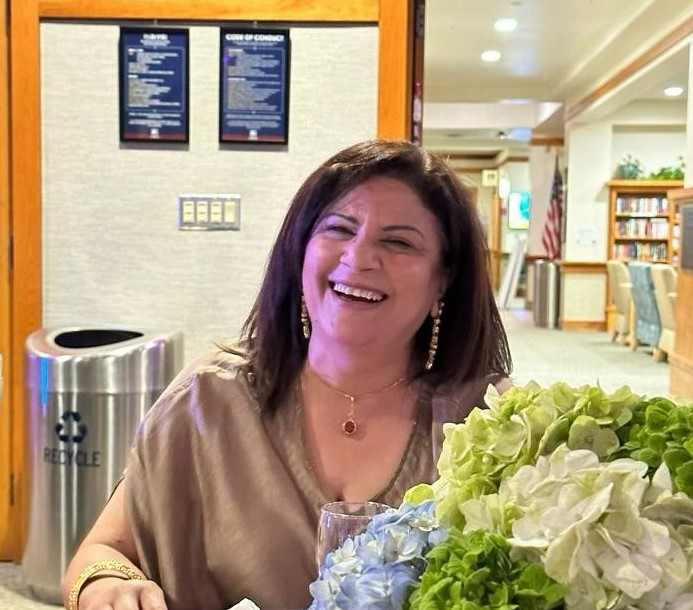The return of preventable diseases
Rates of vaccination in the U.S. have been declining in recent years.
 Representative image. / Canva
Representative image. / Canva
Diseases that can be prevented through vaccination, such as measles, whooping cough, meningitis, and yellow fever, are re-emerging as millions of children miss vaccinations and funding cuts disrupt immunisation programmes and disease surveillance. Health leaders during a recent American Community Media (ACoM) briefing held on May 30 expressed concern.
35 states to date have reported outbreaks of measles this year, with 1,079 cases overall. The number of whooping cough cases has doubled over the previous year. “ Vaccines have historically been our most powerful tool in the elimination of disease,” said Dr. William Schaffner of Vanderbilt University School of Medicine.
“Measles is so contagious. Measles vaccination is a normal two-dose series. It essentially protects you for life. There is no other practical way to stop the spread of something like measles,” said Dr Ben Neuman, Professor of Biology at Texas A&M University
Measles is making a comeback: Can we stop it?
However rates of vaccination in the U.S. have been declining in recent years. Historically, the CDC’s messaging strategy for encouraging vaccination emphasized the importance of protecting both oneself and the community at large, especially vulnerable people who cannot yet get vaccinated such as young babies.
Centers for Disease Control and Prevention (CDC), signaled a shift in how the agency may be responding due to pressure from vaccine critic Robert F. Kennedy, Jr., who is now secretary of health and human services, A CDC spokesperson wrote, “The decision to vaccinate is a personal one.”
The World Health Organization, Unicef, and Gavi have urged leaders around the world to strengthen their vaccination programmes and give the issue their “urgent and sustained political attention.”
When the disease isn’t feared, the vaccine isn’t valued
“As diseases have been reduced through vaccination, knowledge of them by new parents also decreased. When the disease is not feared, the vaccines are not as valued,” said Dr. Schnaffer.”This has led to more questions, hesitancy, skepticism, and even an anti-vaccine movement, resulting in the withholding of children or postponing children from vaccination with devastating effects.”
The total number of confirmed cases is over 700 across four states and the Mexican state of Chihuahua, with Texas reporting 744 cases as of June 9, 2025. Sadly, there have been deaths associated with the outbreak.
In West Texas, specifically Gaines County, an area with low vaccination rates, there was a measles outbreak centered in a Mennonite community. This outbreak, which began with an unvaccinated child who had traveled to Mexico, has highlighted the complex interplay between religious beliefs, community autonomy, and public health concerns regarding vaccination.
“ Many children in this population are not vaccinated. They're susceptible. And when measles was introduced into this population. This most contagious of all viral infections, it spread widely. There are now more than 1,000 cases that have been represented. Many children have had to be hospitalized for one of the prominent complications of measles namely, pneumonia. And we have recorded 3 deaths, two children, and one older person. Two unvaccinated children in Lubbock, Texas, have died, and one unvaccinated adult in Lea County, New Mexico (linked to the Texas outbreak), has also died.
The World Health Organization, Unicef, and Gavi have urged leaders around the world to strengthen their vaccination programmes and give the issue their “urgent and sustained political attention.”
Measles is a fierce disease. Before the measles vaccine was widely available in the 1960s, measles caused significant mortality in the United States, with approximately 400 to 500 children dying each year from the disease and its complications, according to Harvard Health and the Children's Hospital of Philadelphia. In the US, widespread vaccination halted the ongoing spread of measles more than 20 years ago, a major public health achievement.
“We had reduced that number to zero until this year.”
“All of the days that you are not in the hospital, all of the days that you can care for your children when they do succumb to illnesses. These are things that are gifts of the modern era and of vaccines very specifically,” said Peter Chin-Hong MD is Professor of Medicine and Associate Dean for Regional Campuses at the UCSF School of Medicine. He directs the immunocompromised host infectious diseases.
ADVERTISEMENT
ADVERTISEMENT
E Paper
Video

 Ritu Marwah
Ritu Marwah 

.jpg)

.jpg)
.jpg)




Comments
Start the conversation
Become a member of New India Abroad to start commenting.
Sign Up Now
Already have an account? Login